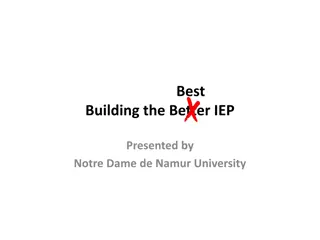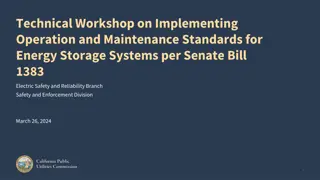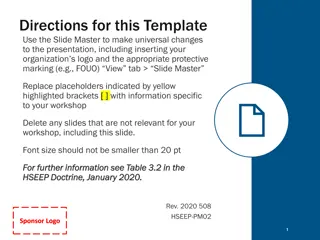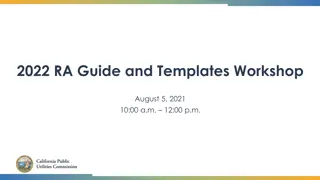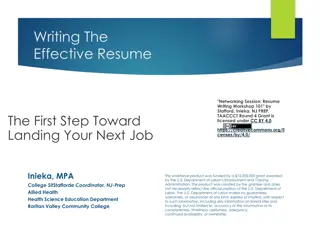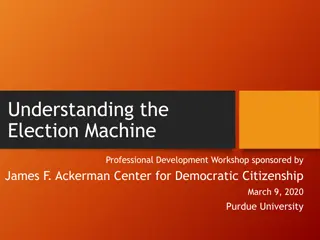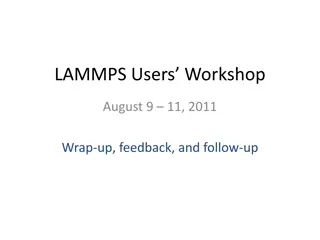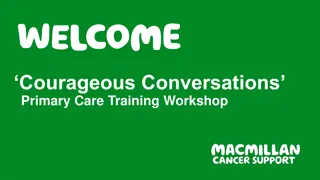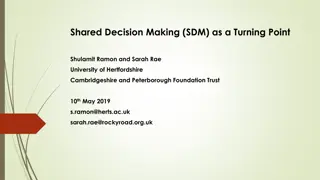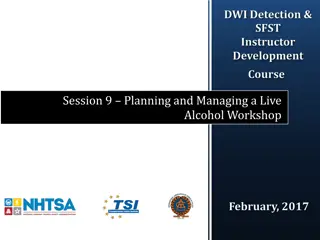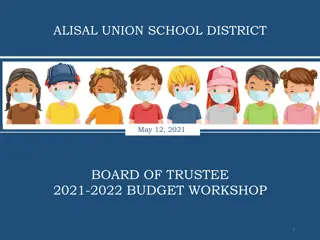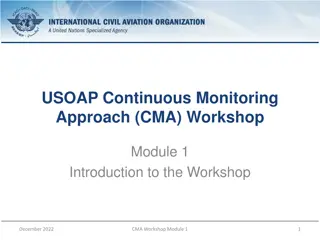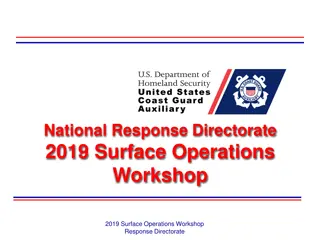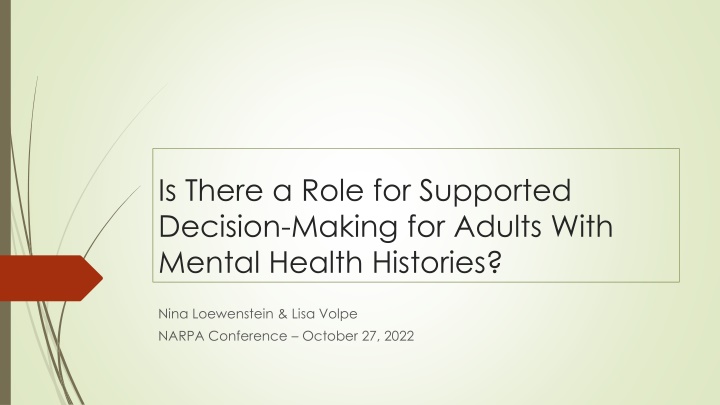
Empowering Decision-Making for Adults With Mental Health Histories
Supported Decision-Making (SDM) offers a framework where individuals with mental health histories can make decisions with assistance, promoting autonomy and dignity. This approach challenges assumptions about capability, aligns with the disability rights movement, and is supported by the United Nations Convention on the Rights of Persons with Disabilities. Learn how SDM empowers individuals and enhances well-being.
Download Presentation

Please find below an Image/Link to download the presentation.
The content on the website is provided AS IS for your information and personal use only. It may not be sold, licensed, or shared on other websites without obtaining consent from the author. If you encounter any issues during the download, it is possible that the publisher has removed the file from their server.
You are allowed to download the files provided on this website for personal or commercial use, subject to the condition that they are used lawfully. All files are the property of their respective owners.
The content on the website is provided AS IS for your information and personal use only. It may not be sold, licensed, or shared on other websites without obtaining consent from the author.
E N D
Presentation Transcript
Is There a Role for Supported Decision-Making for Adults With Mental Health Histories? Nina Loewenstein & Lisa Volpe NARPA Conference October 27, 2022
Supported Decision-Making (SDM) A person makes decisions assisted by a trusted person, or network of trusted people, or supporters. Supporters assist by: Helping the person to understand and appreciate the options, and consequences of each choice Helping the person gather information needed to make the decision Helping the person evaluate the information in accordance with what the person feels is important Communicating the decision to others when necessary Supported decision-making is rooted in respect for the person s dignity, autonomy and right to self-determination
Why is SDM important to the disability rights community? People who have cognitive impairments are not always able to communicate their decisions, and/or who have psychiatric diagnoses or histories, are often assumed not to be capable of making their own decisions. Instead, others make decisions for them. SDM is rooted in the concept that people thought not to be capable, can make their own decisions with support. It broadens the scope for how a person is understood to exercise personal decision-making, thereby advancing the person s autonomy. People who make their own decisions with support, in contrast to having decisions made for them, feel empowered and in control of their lives and they are. Central to well-being.
United Nations Convention on the Rights of Persons with Disabilities (CRPD): Article 12 (2006) Paradigm shift from substitute decision-making to supported decision-making. Everyone, regardless of mental disability or cognitive impairment, is entitled to make decisions and have those decisions recognized under the law Governments may not deprive individuals of their legal capacity, or right to make decisions and have those decisions recognized, on the grounds of disability or impaired decision-making skills Rather, cognitive and other mental disabilities trigger a right to support in decision-making Concept of Reasonable Accommodation
Survivors of Psychiatry & the U.N. Convention: Aligned with disability rights movement: MindFreedom International, World Network of Users and Survivors of Psychiatry (WNUSP) Advocated for Article 12, with the goal of curbing forced interventions based upon actual or perceived impairment. We achieved the underlying goal through an obligation on free & informed consent in the Article on health, and a legally innovative guarantee of equal legal capacity, which transformed disability human rights law by allowing only support not substitution of a person s will when they may face difficulty carrying out legal acts or making decisions. - Tina Minkowitz, Reparation for Psychiatric Violence: A Call to Justice, in Mental Health, Legal Capacity, and Human Rights (2021) WNUSP reaffirms importance of Article 12 & SDM for comments on Article 19 s rights to community inclusion (2016)
Recovery & Supported Decision- Making Compatible with processes of recovery: self- determination supported through relationships & social networks Example: Clubhouse Model: recovery through supportive community Crisis planning; processes for developing psychiatric advance directives
California Supported Decision-Making Projects Foundation-funded project to examine quality of life for people with schizophrenia and bipolar disorder who implement SDM s. 80 participants, two comparison groups: 1) individuals who create SDM plans for any area of life they choose, and 2) individuals who create SDM plans in three specific areas (health choices, jobs, and money). Several counties now participating in state-funded project 2021-2025 to implement psychiatric advance directives using supported decision- making. Goal of improving response to individuals in crisis from law enforcement and behavioral health workers. Individuals make informed preferences for treatment receive appropriate support and care. Results will inform development of an infrastructure to promote and sustain use of PADs throughout California. USC Prof. Elyn Saks: https://publications.ici.umn.edu/impact/32-1/the- power-of-making-decisions
Federally Funded & State Grant Programs & Pilots Focus on ID/DD: National Resource Center Supported Decision-Making Grants (Administration for Community Living): incl. Indiana, Maine, North Carolina, South Carolina, Tennessee, Wisconsin U.S. Dept. of Education State funded task forces: Maine, Virginia Massachusetts, New York, Georgia, Virginia, Texas pilot projects for persons with intellectual & developmental disabilities
State Laws that Recognize & Formalize Supported Decision-Making New York North Dakota Rhode Island Texas Washington Wisconsin Alaska California Colorado Delaware District of Columbia Illinois Indiana Louisiana Nevada
State SDM Laws: Typical Elements Defines supported decision-making Most statutes define disability of adult who uses SDM broadly; several do not mention disability. Two statutes (Illinois & NY) limit SDM s w/ legal effect to intellectual disability Formalizes agreement. Valid/legal effect if meet conditions, such as: Elements: nature of decisions, identifies supporter(s) Supporter s access to information, declarations Process: in writing, dated, signed by all before two witnesses, notary Adult must have entered the agreement voluntarily & with understanding Requires third-party reliance on a valid agreement/decisions Limits liability for relying on agreement thought to be valid Protection of DM: Reporting of abuse Supporter must not exercise undue influence DM makes the decisions Limits on who may be supporter, to avoid conflict of interest (e.g., not a health care provider or employer)
State SDM Laws: Typical Elements contd Use of supported agreement does not mean incapacity Decision-maker can act independently of agreement Supporter s role: Assist the DM understand info concerning/options/consequences/responsibilities Help to gather information for decision-making, access to confidential info Being present with DM and others for decision-making May communicate decision on behalf of DM Advocating to ensure DM s decisions are implemented Revocation by DM or supporter
State Laws & Courts: SDMs & Guardianship Many states require courts to review alternatives to guardianship, including SDM, and determine by clear and convincing evidence that less restrictive alternatives are not sufficient. Several states refer specifically to SDM. These states do not necessarily have a separate SDM statute (and vice versa). In some states with no statutory reference to SDM as a less restrictive alternative, caselaw has nonetheless evolved for adults with ID/DD, terminating or avoiding guardianship (or evolved prior to legislation) Some states explicitly permit SDM for someone under guardianship, but guardian must approve.
Why has SDM not caught on more widely for people with mental health histories? Lack of federal support contrast in priorities for ID/DD Perceived polarity of capacity in decision-making: either have it or don t Fears of identifying functional impairments that affect decision-making Focus on cognitive aspects of decision-making nature of support Use of informal SDM is intermittent, fluctuation in needs Fears of support coercion; paternalism Not enough folks in circumstances where SDM is naturally occurring Policy direction of formalizing SDM Prejudice/assumptions?
Including Persons with Mental Health Histories and Cognitive Decline Of the 14 State SDM Statutes, one half broadly define the person utilizing supported decision-making as an individual with a physical or mental impairment. California specific but broad: includes but not limited to, older adults, adults with psychiatric diagnoses, cognitive impairment, learning disabilities, dementia and neurocognitive disability. Only two statutes specifically limit SMD to those with intellectual or developmental disabilities (IL and NY) Several States do not define disability at all, or use the ADA definition, instead merely recognizing the right of any person in need of supports to utilize SDM (NV, LA, ND, IN)
Literature with a Broad Focus SAMSHA 2011 publication for Individuals with a "Roadmap" to guide individuals with impairments or disabilities in making decisions with the help of Supporters. SAMSHA Peer Workers website page with focus of promoting the planning, adoption, and expansion of sustainable recovery-oriented supports, services, policies, and practices by supporting peer-run, recovery community, and family-run organizations and developing shared decision-making tools Volunteers of America, Center for Excellence in Supported Decision-Making December 2021 publication Best Practices: How to be an Effective Supporter focused broadly on supporting any person with impaired ability to make decisions (grant from State of Minnesota) American Bar Association 2017 Resolution reaffirming commitment to pursuit of Less Restrictive Alternatives to Guardianship and urging States to amend guardianship statutes to require consideration of SDM by courts and others before imposing guardianship. Practical Tool for Lawyers: Steps in Supporting Decision-Making Aimed at helping lawyers identify and implement decision-making options for persons with disabilities.
Educating the Professionals Psychiatrists, Psychologists, Physicians, Social Workers, Case Managers, Clergy Promote SDM as a strategy for decision-making in all aspects of life, not just psychiatric and medical treatment Change the Culture from Coercive and Treatment-Centered, based on the assumption of incapacity, to a Culture based on an assumption of capacity, where Individual's Voice is heard Refocus the Decision-Making: Not Decisions for, but rather, Decisions with the Individual Educate Providers to the benefits of SDM: Development of trust-based relationship Better decision outcomes truly informed consent Better and voluntary participation in treatment Individual's increased satisfaction and sense of dignity and self-worth Explore the array of available supports for individuals with mental disabilities Family, Friends, Peers
Supports in the Community Clubhouse model- naturally occurring environment for SDM Supportive Community of People sharing a common purpose and work Membership is voluntary, not coerced or mandated Allows for Individual development and recovery in a supportive environment Allows the development of trust based relationships; the community values each member equally Encourages viewing self as a valued member of society, promotes sense of dignity and autonomy Not based on Need for Specific Treatment Services, but rather on Supports for the Group Focused on what can be accomplished not what cannot
Clubhouse model goals = SDM goals CLUBHOUSE: Clubhouse model is founded on developing human interactions as individuals work together toward a common goal. Goal is to engage members to identify needs, preferences and personal goals and help them find ways to achieve those goals SDM: Relationship between Individual and Supporter is built on trust and reciprocity Role of Supporter/Professionals/Facilitators: Help Individual identify needs, preferences and goals Help individual identify problems and find information and resolution to problems Help Individual articulate their views
SDM: Formal or Informal Arrangements Benefits of Formal Written Agreement Evidence of Decision-Making Capability with Support In States recognizing SDM agreements Choices are enforceable Protections for Decision-Maker Benefits of Informal Decision-Making Supports Individuals who are reluctant to sign a formal agreement still engage in the decision-making process with informal supports May encourage sense of autonomy Individual and Supporters can provide statements or testimony as evidence of Decision-Making Capability with Support Conversations regarding both Informal and Formal Agreements Should Continue and goals should be revisited at any time Even with a Formal Agreement to use Supporters, independent decisions can be made
Resources National Resource Center for Supported Decision-Making http://www.supporteddecisionmaking.org/ Best Practices in Supported Decision-Making: How to be an Effective Supporter Center for Excellence in Supported Decision-Making and State of Minnesota; December, 2021 https://www.voamnwi.org/sites/default/files/download-file/Best%20Practices%20for%20Supporters%20CESDM.pdf Practical Tool for Lawyers: Steps in Supported Decision-Making American Bar Association http://supporteddecisionmaking.org/sites/default/files/PRACTICALGuide.pdf Substance Abuse & Mental Health Services Administration (SAMSHA) https://www.samhsa.gov/brss-tacs/recovery-support-tools/peers https://www.samhsa.gov/brss-tacs/recovery-support-tools/shared-decision-making North Dakota Supported Decision-Making Project https://www.ndpanda.org/sites/www/files/documents/sdmguide.pdf

